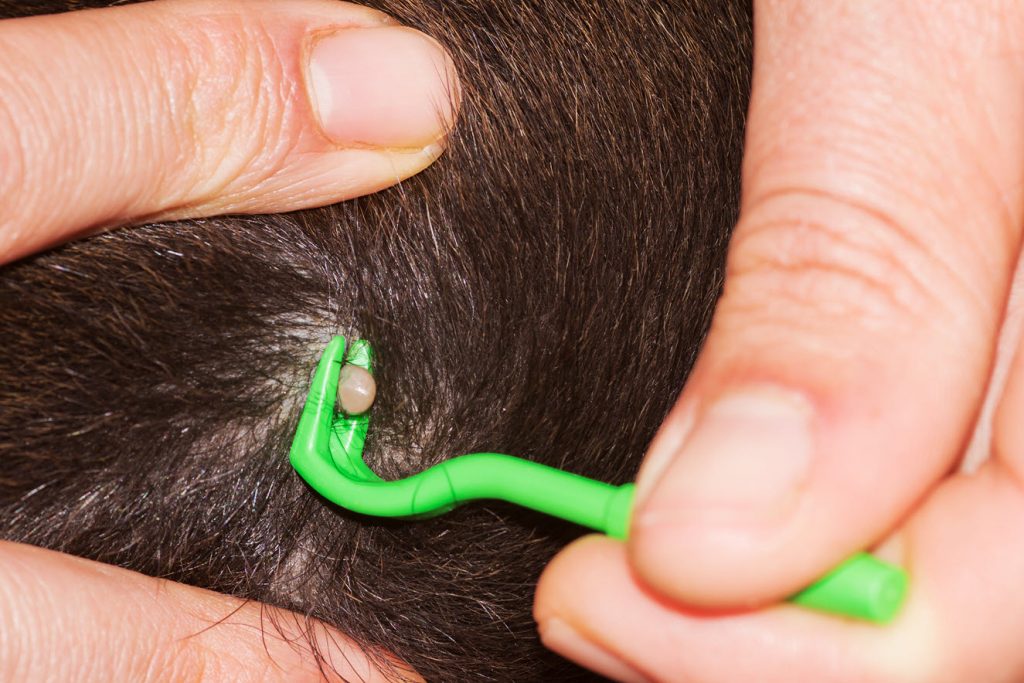Staying Safe From Tick-borne Diseases in the UK
Share article:
Article by:
Advice From, UK Health Security Agency, British Deer Society
Staying Safe From Tick-borne Diseases in the UK
If you love the great outdoors and like the BDS have a passion for deer then you probably have had some experience of ticks and are aware of the risk of Lyme disease.
However, life keeps us busy and a reminder from time to time is always a good thing, so this blog article is going to cover some of the current advice from the UK Health Security Agency to help us all stay safe from tick-borne diseases.
Ticks can carry several infections and while Lyme disease is more common in the UK, there have also been recently confirmed cases of tick-borne encephalitis (TBE) in England. So, to protect yourself preventing tick bites is your first line of defence.
Avoiding tick bites
When visiting green spaces, wear clothing that covers your skin and use insect repellent that includes DEET. Wearing light-coloured clothing can make ticks easier to spot and brush off.
After spending time outside, look for ticks on your skin, clothing, pets, and others. If you find an attached tick, remove it quickly using a tick-removal tool. If you know how to remove it safely you can also use fine-tipped tweezers.
If you have been bitten please be vigilant for Lyme disease or TBE symptoms particularly between 3 to 30 days after a bite.
Lyme disease symptoms and treatment
The most common symptom is a spreading, bulls-eye rash at the site of the tick bite which typically develops 3 to 30 days after being bitten. This occurs in approximately 2/3 of infected people. Other symptoms include a non-specific flu-like illness, a facial droop, nerve pains and numbness or tingling in the hands or feet.
In the UK, Lyme disease is an uncommon infection and can be successfully treated with antibiotics as per NICE guidelines.
If untreated, it can cause a wider range of symptoms in some people such as multiple rashes on other parts of the body, facial droop, shooting nerve pain and rarely palpitations or joint swelling.
Most patients treated in the later stages of infection also respond very well to antibiotics, although some may have long-term damage to their joints or the nervous system.
Rapid recognition of symptoms can ensure that you receive the earliest diagnosis and treatment from your GP.
If you have developed symptoms, immediately contact your GP, or call NHS 111, mentioning where you have been and if you remember being bitten. There are national guidelines for doctors that provide advice on the diagnosis and management of Lyme disease.
Tick-borne Encephalitis symptoms and treatment
TBEV is a viral infection that spreads through tick bites. Although it is prevalent in many parts of the world, including several European countries, in the last few years, ticks carrying TBEV have been found in England.
TBEV causes a range of diseases, from completely asymptomatic infection to mild flu-like illness, all the way to severe infection in the central nervous system such as meningitis or encephalitis (swelling of the brain).
Symptoms of encephalitis can include a high fever with a headache, neck stiffness, confusion, seizures, or fits, reduced or loss of consciousness.
Seek urgent medical attention if you or anyone you know experiences symptoms of meningitis:
- severe headache
- stiff neck
- pain looking at bright lights
Seek urgent medical attention if you or anyone you know develops neurological symptoms:
- a fit (seizure), if not known to be epileptic
- sudden confusion or change in behaviour
- weakness or loss of movement in arms and legs
- facial dropping, change in vision or slurred speech
More information can be found on the NHS website.
Advice and treatment is available through the NHS. So, if you think you have been bitten by a tick and have symptoms, contact your GP.












